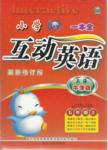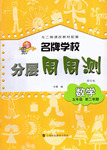题目内容
6.Were you the first or the last child in your family?Or were you a middle or an only child?Some people think (61)itmatters where you were born in your family.But there are different ideas about what birth order means.Some people say that oldest children,(62)whoare smart and strong-willed,are very likely(63)to succeed(succeed).The reason(64)forthis is simple.Parents have a lot of time for their first child and give him or her a lot of attention.An only child will succeed for(65)thesame reason.What happens to the(66)otherchildren in the family?Middle children don't get so much attention,so they don't feel that important.If a family has many children,the middle one sometimes gets lost in the crowd.The youngest child,(67)however,often gets special treatment.Often this child grows up to be funny.But a recent study saw things quite(68)differently(difference).The study found that first children believed in family rules.They didn't take many chances in(69)theirlives.They usually(70)followed(follow) orders.Rules didn't mean as much to later children in the family.They took chances and they often did better in life.
分析 作者在本段文字中讲到在一个有多个孩子的家庭中,你在家庭中出生的位置是很重要的.有人认为,家中的长子做事容易成功,这是因为作为家中最早的孩子他们聪明,有坚强的意志,父母有充足的时间照顾他们,独生子女容易成功也是这个原因.与他们相比,中间的孩子不能引起足够的注意,所以他们常感到自己不是那么重要,常被忽视.最小的孩子能得到特殊的照顾.最近的研究却表明,长子总是遵循老一辈留下的规矩,生活中不会做出大的改变.
解答 61.it;考查it作形式宾语,真正的宾语是后面的where you were born in your family,句意为"一些人认为你出生在家庭中的什么位置是很重要的".
62.who;考查定语从句,先行词是oldest children,在非限制性定语从句中作主语,所以用who.
63.to succeed;考查固定搭配,be likely to do 是固定短语,意为"可能做某事".
64.for;考查介词,the reason for是习惯用法,意为"…的理由".
65.the;考查定冠词,same常与定冠词the连用,意为"相同的…".
66.other;考查形容词,根据上下文句意,这里只除了长子外的其他的孩子,所以用other.
67.however;根据上下文,前面讲到"在一个有很多孩子的家庭中,中间的孩子常被忽视",后面又说"最小的孩子常常会得到专门的照顾",所以这里应当是
转折关系,故空格处应该用however.
68.differently;考查副词,这里用副词形式differently修饰前面的动词saw.
69.their;考查物主代词,句子的主语是they,所以这里用与之相对应的形容词性物主代词their,这句话是说"在他们的生命中没有很多机会".
70.followed;考查动词的时态,文章通篇用了过去时,所以此处也用动词follow的一般过去时.
点评 首先要通读全文,了解大意,抓住上下文语境所提供的信息,仔细分析带空格的句子,明确空格所要填的词义,词型和短语搭配给出所要填的正确形式,然后整体阅读短文,核对答案.

 互动英语系列答案
互动英语系列答案 名牌学校分层周周测系列答案
名牌学校分层周周测系列答案| A. | if | B. | because | C. | when | D. | that |
| A. | minds | B. | values | C. | counts | D. | means |
| A. | what it was that | B. | that what was it | ||
| C. | it was what that | D. | what was it that |
 Children love to play and laugh throughout their days at school or at home.Finding the time to laugh with your children may be the best thing you can do for the relationship.Encourage your children to develop a good humor by laughing at the jokes they make up on the spot.This will help them grow confident and build their self-esteem.If you do not get the joke,you can ask why they think the joke is funny.
Children love to play and laugh throughout their days at school or at home.Finding the time to laugh with your children may be the best thing you can do for the relationship.Encourage your children to develop a good humor by laughing at the jokes they make up on the spot.This will help them grow confident and build their self-esteem.If you do not get the joke,you can ask why they think the joke is funny.